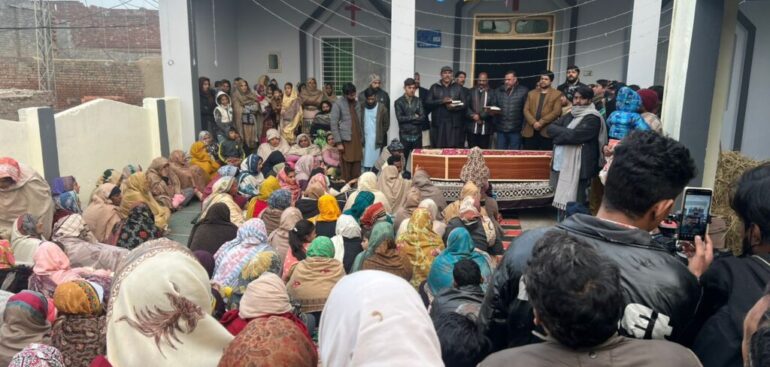The heartbreaking death of Suleman Masih, a 24-year-old Christian, has devastated his family and shaken the local community, once again shedding light on the struggles faced by Christians and other religious minorities in Pakistan. Suleman was brutally attacked on December 29, 2024, in Kot Saadullah, Rahawali, Gujranwala, and tragically lost his life on January 1, 2025.
Suleman’s story is one of resilience and hard work. As shared by Fr. Lazar Aslam OFM, a Pakistani priest, Suleman began his journey collecting waste materials to earn a living. He gradually expanded his work through relentless effort and determination, acquiring agricultural machinery and eventually managing 25 acres of wheat and rice fields. Over the past year, he achieved what many dream of—a stable livelihood, a vehicle, and a sense of pride in his accomplishments.
But Suleman’s success came at a price. His achievements stirred envy and hostility in others, turning him into a target of threats and violence. For six long months, he endured harassment, the deliberate destruction of his machinery and crops, and an escalating sense of fear. Despite reporting these incidents to the authorities, no meaningful action was taken to protect him.
On December 29, Suleman’s life was cruelly cut short. He was brutally attacked and shot, leaving him with critical injuries, including severe kidney damage. Despite fighting for his life, he passed away on New Year’s Day, leaving his family and community heartbroken.
Adding to the tragedy, another victim in the attack initially gave a false statement under police pressure, obscuring the truth. However, eyewitness accounts later confirmed that Suleman was an innocent man, caught in a deliberate and merciless act of violence.
Although four of the five attackers have been arrested, the main perpetrator remains free, a haunting reminder of the systemic challenges faced by religious minorities in Pakistan.
Suleman’s death is more than a personal loss—it is a painful reminder of the daily struggles endured by Christians and other minorities in a society that often fails to protect them.
Fr. Lazar Aslam, along with Suleman’s grieving family, is now calling for justice. They plead for both local and international authorities to stand with them—to take decisive action to protect religious minorities, to prevent further acts of violence, and to honor Suleman’s memory by fighting against the forces of hatred and discrimination.
Suleman Masih’s story is one of courage and perseverance, but it also should never have ended this way. His loss is a call to action—a plea for justice, compassion, and change.
